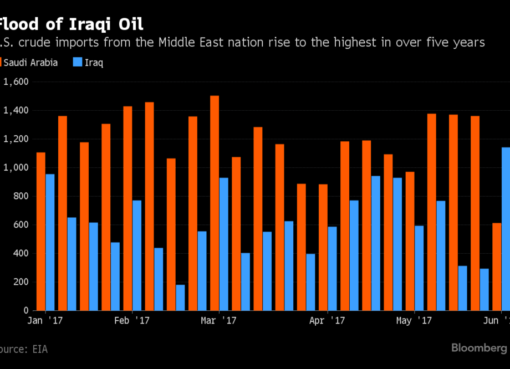BAGHDAD (Reuters) – Iraqi Prime Minister Adel Abdul Mahdi will step down only if parliament’s main blocs can agree on his replacement, the country’s president said on Thursday, but tens of thousands of protesters said his resignation would not be enough.
Peoples from across Iraq’s sectarian and ethnic divides thronged Baghdad’s Tahrir Square in a show of fury at an elite they see as deeply corrupt, beholden to foreign powers and responsible for daily privations and shambolic public services.
More than 250 people have been killed in clashes with security forces and paramilitary groups since protests began on Oct. 1 and eventually swelled into the worst mass unrest in Iraq since the 2003 fall of Saddam Hussein.
Abdul Mahdi, who despite promises of reforms and a broad reshuffle of his cabinet, has struggled to address the street’s demands. He has refused calls for an early election made by his erstwhile main supporter, populist cleric Moqtada al-Sadr.
“The prime minister had previously agreed to submit his resignation, if the blocs agree on an acceptable replacement in order to adhere to constitutional and legal frameworks,” President Barham Salih said in a live televised address.
Abdul Mahdi said on Tuesday it would be quicker if Sadr and his main rival Hadi al-Amiri agreed on a replacement, and would prevent months of chaos.
At the behest of Iran, which exerts great influence on Iraqi politics, Amiri rejected Sadr’s push to oust Abdul Mahdi after meeting top militia commanders in his bloc on Wednesday, five sources with knowledge of the talks told Reuters.
While political elites jostled over Abdul Mahdi’s fate, Iraqis on the streets demanded an end to the entire governing system of identity-based, sectarian power-sharing.
“Today we are at a stage where our demand ceiling is much higher than the prime minister’s removal, The people of Iraq want a complete overhaul of the political system,” said protester Salman Khairallah, 27, who wore a tee-shirt emblazoned with “We dream of a new Iraq”.
“We want a pluralistic democracy that lifts this society from the pit we’ve been driven into for the past 16 years.”
DESPISED ELITES
But early elections cannot be held until a new electoral law is passed, Salih said, adding that he expected a bill to be introduced in parliament by next week.
It took more than six months of negotiations before Abdul Mahdi was appointed a year ago, and finding a successor all the political factions can agree to will not be easy.
He emerged as a compromise candidate between Amiri – who leads an alliance of Iran-backed Shi’ite militia fighters that holds the second-largest amount of seats in parliament – and Sadr, a Shi’ite cleric who heads the largest bloc.
Despite OPEC member Iraq’s vast oil wealth, many Iraqis live in poverty or have limited access to clean water, electricity, basic health care and education. Most of the protesters are young people who above all want jobs.
Many see the political class as subservient to one or another of Baghdad’s main allies, the United States and Iran. These powers, they say, use Iraq as a proxy to pursue a struggle for regional influence, without concern for the needs of Iraqis.
“Today the best of the Iraqi people are here against those corrupt traitors, the lowest run of society. God willing, their days are numbered and their place is the dustbin of history,” said a protester who only identified himself as Abu Motaz.
He was speaking over the sound of electric shavers after receiving a haircut from a barber who pitched up in Tahrir Square offering free services for protesters.
CRITICAL MASS
The amount of protesters on Thursday appeared larger than any other day since a second wave of the protests resumed on Friday after stopping for two weeks.
Many families, young women, and older people started joining the protests as they gained momentum and appeared safer, at least in daytime hours.
Many took selfies on Thursday and a group of teenage girls drew murals.
Protesters also set up more makeshift tents and lay down mattresses for the larger numbers planning to stay overnight.
Hundreds squeezed into all floors of a highrise building known as the Turkish Restaurant that they claimed as a symbolic base. Days of camping out imbued them with confidence, with a significant amount of people wearing helmets and gasmasks.
By day, security forces have generally used only restrained force against large numbers of protesters, but after nightfall violence has surged as the ranks of demonstrators have dwindled and drawn more frequent volleys of tear gas.
While the overall level of violence has eased in the capital this week, security forces still killed three protesters overnight and early Thursday morning, the latest to die from tear gas canisters lobbed directly at them.
More than 50 protesters were injured.
Amnesty International said on Thursday security forces were using “previously unseen” tear gas canisters modeled on military grenades that are 10 times as heavy as standard ones.
Protests also occurred in seven other provinces, mostly in the southern Shi’ite heartland. Thousands gathered in Nassiriya, Diwaniya and oil-rich Basra while hundreds hit the streets in Hilla, Samawa, and the Shi’ite holy city of Najaf.
Hundreds gathered in the eastern, communally mixed province of Diyala that borders on Iran.
Reporting by Ahmed Aboulenein and Ahmed Rasheed; Additional reporting by Raya Jalabi in Baghdad, Alaa al-Marjani in Najaf, and Adam Hadi in Baquba; Writing by Ahmed Aboulenein; Editing by Mark Heinrich
Source: Reuters, October 31. 2019








Comment here